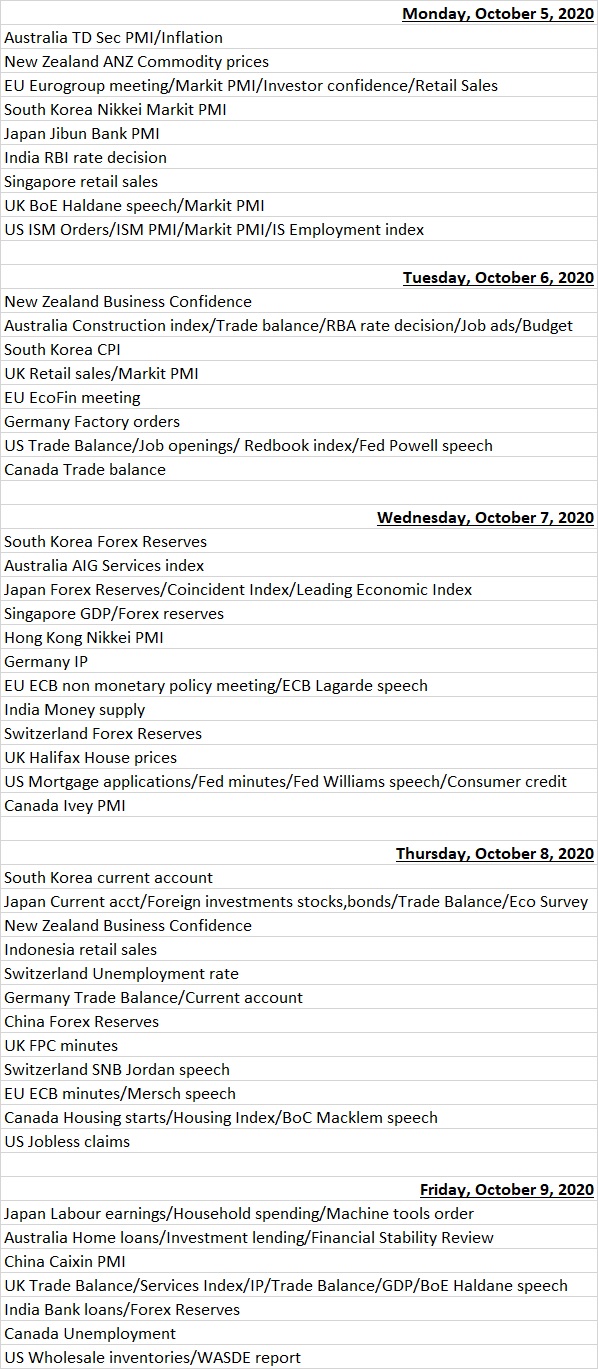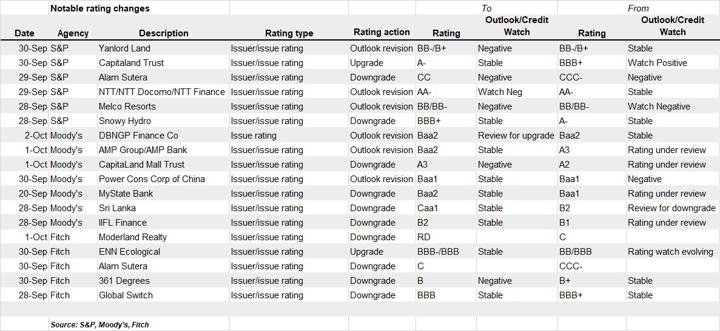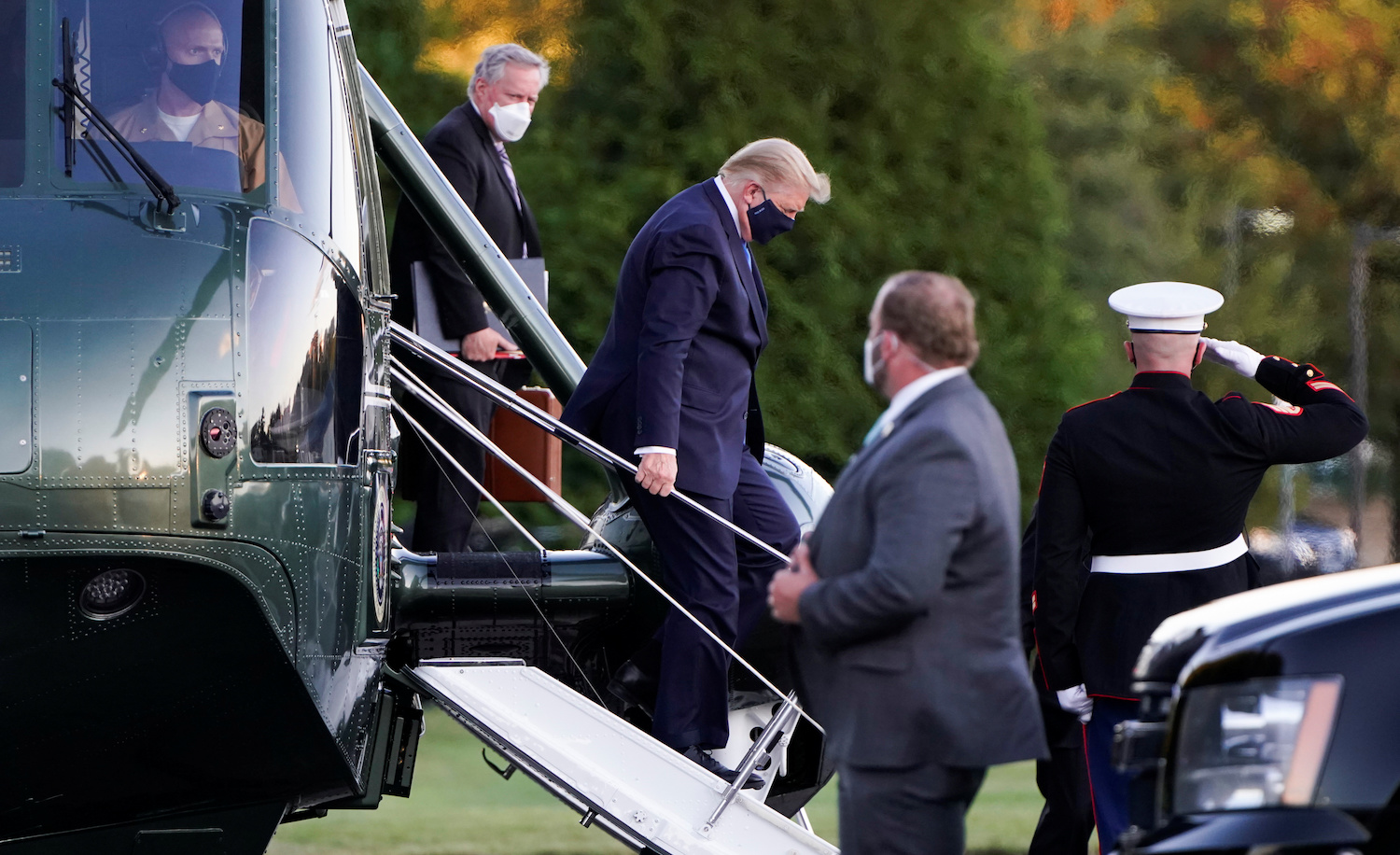(ATF) Economic events
Financial markets this week will monitor US President Donald Trump’s health updates, the fate of the US stimulus bill and US Secretary of State Mike Pompeo’s East Asia visit to American allies, for whom trade with China is equally important.
“President Trump’s contraction of Covid-19 will buy him some voter sympathy but it will not change the game in the US election unless he perishes from the disease (unlikely), or Senate Republicans agree to a new relief package in the face of heightened national attention to the pandemic,” macro research firm BCA Research said in a note.
“The election is ultimately about the pace of de-globalization and the disruptiveness of US political polarization. If Trump wins (35% odds) these forces will intensify. If not, global uncertainty will get a reprieve . though US-China conflict will persist in the long run.”
On Thursday, the House passed a $2.2 trillion Democratic coronavirus stimulus plan, but the bill is unlikely to pass through the Republican-led Senate.
Investors will also consider the slowing recovery in the world’s largest economy after Friday’s US jobs data showed nonfarm payrolls increased by 661,000 jobs last month, below consensus expectations of 850,000.
Markets in China, Hong Kong, Taiwan, India and South Korea will also play catch-up on the news cycle after Friday’s holiday closure.
In the week ahead, monetary policy decisions in Singapore, India and Australia, inflation data out of Korea, Taiwan, Thailand, and the Philippines, and resumption of China’s economic activity on Thursday after the end of the Golden Week holiday.
Although there have been indications of rejuvenated appetite for risk seen in the weekly fund flow data, volatility will also remain elevated amid coronavirus cases rising in major economies, and uncertainty about the forthcoming US election. Both could continue to weigh on risky assets in the near term.
Fund flows
The last week of the third quarter has marked a significant shift in flows in what has been an extraordinary year for markets. In early signs of a possible portfolio rotation away from fixed income into riskier assets, equity funds attracted five times the amount of fresh money that bond funds absorbed, according to fund flows data provider EPFR.
It said the week ending Sept. 30 saw inflow streaks stretching back to late June and early April come to an end for Emerging Markets and Global Bond Funds, while Emerging Markets and Global Equity Funds both recorded solid inflows.
“The idea of a ‘Great Rotation’ from fixed income to equity, which came to the fore in 2013, is based on the assumption that the yield compression triggered by ultra-accommodative monetary policy will force investors to move money into stocks which, though riskier and more volatile, offer more scope for appreciation,” Cameron Brandt EPFR’s director of research said, adding that low yields are pushing investors towards riskier assets and anticipation of a major rotation is building.
EPFR data showed that bond funds took in a net $2.1 billion while equity funds absorbed $11 billion with a third of that going to funds with socially responsible (SRI) or environmental, social and governance (ESG) mandates. Select EM markets benefitted, with larger ones like China, Korea, Mexico and Brazil Equity Funds all recording solid inflows, and flows into BRIC (Brazil, Russia, India and China) Equity Funds hitting their highest level since the first quarter of 2019. But smaller EM and frontier markets continue to see outflows with frontier market funds seeing net redemptions for the ninth time in the past 10 weeks.
Meanwhile, developed market equities remain in favour on expectations of a US pandemic aid package, improved economic data from China and fading enthusiasm for fixed income. US, Global, Japan and Canada Equity Funds all recorded positive flows. Japan Equity Funds recorded their biggest inflow since late March, Global Equity Funds, continue to take in fresh money from both retail and institutional investors and investors with stakes in US equities, moves to large caps and small caps switching out of midcaps.
“Following a week of risk aversion, investors renewed their interest in equities, pumping a net $10.9 billion into Global Equity Funds,” Jefferies quantitative strategist Kenneth Chan said. “Geographical interest was heavily skewed towards US, Japan and China with these three accounting for ~90% of the global inflows.”
Chan said investors exited Corporate Bonds, where outflows were largest since March. EM bonds, Inflation-Protection Bonds and Municipal Bonds run of 12, 15 and 20 straight weeks of injections ended with redemption in the last week.
Reflecting the risk-on mood were the withdrawals from US money market funds, where redemptions struck for the eighth straight week, with over 30% of the record injections into US MMFs seen in March and April have now been unwound, Chan said.
Economic data calendar

Last week’s rating changes

























